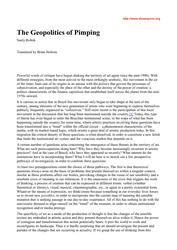{from the text}
"Powerful winds of critique have begun shaking the territory of art again since the mid-1990s. With different strategies, from the most activist to the most strikingly aesthetic, this movement in the air of the times finds one of its origins in an unease with the politics that govern the processes of subjectivation, and especially the place of the other and the destiny of the power of creation: a politics characteristic of the finance capitalism that established itself across the planet from the mid-1970s onward.
It is curious to notice that in Brazil this movement only began to take shape at the turn of the century, among elements of the new generation of artists who were beginning to express themselves publicly, frequently organized as “collectives.” Still more recent is the participation of this local movement in the discussion that has long been maintained outside the country.[1] Today, this type of theme has even begun to enter the Brazilian institutional scene, in the wake of what has been happening outside the country for some time, where artistic practices involving these questions have been transformed into a “trend” within the official circuit – a phenomenon characteristic of the media, with its market-based logic, which orients a great deal of artistic production today. In this migration the critical density of those questions is often dissolved, in order to constitute a new fetish that feeds the institutional art system and the voracious market that depends on it.
A certain number of questions arise concerning the emergence of these themes in the territory of art. What are such preoccupations doing here? Why have they become increasingly recurrent in artistic practices? And in the case of Brazil, why have they appeared so recently? What interest do the institutions have in incorporating them? What I will do here is to sketch out a few prospective pathways of investigation, in order to confront these questions."


Comentários